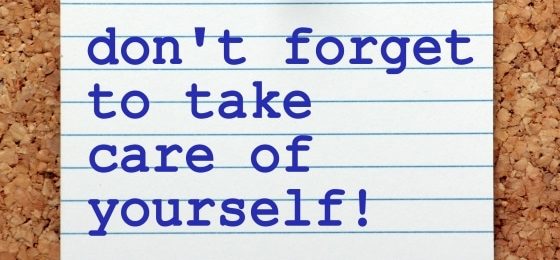Six Common Mental Health Issues
Your mental health is more important than your physical well-being. The reason is, psychological issues are not visible on the outside. They make you suffer in the shadows.
However, the awareness of the importance of mental health is increasing daily. People are now taking their mental health seriously and seeking treatment. Still, a large number of people confuse mental health issues with physical ailments.
In this article today, I will list down some of the common mental health disorders, their symptoms, and treatments.
1. Generalized Anxiety Disorder
Generalized anxiety disorder (GAD) is a psychological disorder characterized by extreme restlessness and worry. Individuals with GAD remain worried about little things, which causes significant distress in their lives.
According to the Anxiety and Depression Association of America (ADAA), anxiety disorder affects around 40 million people worldwide, out of which GAD is the most common one.
Symptoms of Generalized Anxiety Disorder
- Racing thoughts and persistent worry
- Sleep and appetite disturbances
- Trembling and shaking
- Palpitations and shortness of breath
- Dry mouth or excessive sweating
- Dizziness and muscle aches
Treatment of Generalized Anxiety Disorder
- Serotonin and noradrenaline reuptake inhibitors (SNRIs)
- Selective serotonin reuptake inhibitors (SSRIs)
- Pregabalin and benzodiazepines
- Meditation and deep breathing exercises
- Cognitive-behavioral therapy (CBT)
- Plants and herbs like Canadian shrooms and ashwagandha
2. Major Depressive Disorder
Major depressive disorder, commonly referred to as clinical depression, is one of the most prevalent mental health disorders globally.
According to statistics by the World Health Organization, around 264 million people suffer from clinical depression worldwide. It’s also a severe mood disorder that can lead you to suicide if left untreated.
Symptoms of Major Depressive Disorder
- Feelings of sadness and hopelessness
- Binge eating or loss of appetite
- Insomnia or sleeping too much
- Digestive issues and body aches
- Loss of interest in everyday life activities
- Fatigue and irritable mood
- Suicidal behavior or possible attempts
Treatment of Major Depressive Disorder
- Antidepressants and benzodiazepines
- Music therapy and guided imagery
- Cognitive-behavioral therapy (CBT)
- Plants and herbs like chamomile and saffron
- Lifestyle rehabilitation, including exercise
3. Social Anxiety Disorder
Thirdly, social anxiety disorder, also called people phobia, is a common kind of anxiety disorder. It’s a fear of exposure to social situations, facing people, attending public gatherings, and more.
It is said that social anxiety disorder affects millions of people from around the world annually, out of which more than 70% of the individuals experience their initial symptoms in early childhood.
Symptoms of Social Anxiety Disorder
- Anxiety when talking to someone
- Stammering, trembling or sweating
- Feelings of going blank
- Palpitations or shortness of breath
- Digestive issues and muscle aches
- Lightheadedness or dizziness
Treatment of Social Anxiety Disorder
- Antidepressants and benzodiazepines
- Selective serotonin reuptake inhibitors (SSRIs)
- Meditation and deep breathing exercises
- Cognitive-behavioral therapy (CBT)
- Prolonged exposure therapy
- A balanced diet without carbs and stimulants
4. Bipolar Disorder
Bipolar disorder, also known as manic depression, prominently stands between mood and psychotic disorders. It comes in three different episodes, mania, hypomania, and major depressive episode.
As stated by the National Institute of Mental Health, approximately 4.4% of the American population will suffer from bipolar disorder at one point in their lives. It’s common in every age group and gender.
Symptoms of Bipolar Disorder
- Talkativeness and racing thoughts
- An exaggerated sense of self
- Compromised decision-making skills
- Memory amnesia and difficulty concentrating
- Withdrawal from family and friends
- Sleep and appetite disturbances
Treatment of Bipolar Disorder
- Mood stabilizers and antipsychotics
- Benzodiazepines and SSRIs
- Substance abuse treatment
- Cognitive-behavioral therapy (CBT)
- Electroconvulsive shock treatment (ECT)
- Relaxing techniques, including muscle exercises and guided imagery
5. Schizophrenia
Schizophrenia is the most severe mental health disorder to date. It’s a lifelong illness characterized by various psychotic features. According to the WHO fact sheet, more than 20 million people in the world have schizophrenia.
It is further stated that people with schizophrenia are 2-3 times more likely to die earlier compared to others. The alarming thing is that the figure is increasing by the day. It’s indeed one of the saddest facts about mental health disorders.
Symptoms of Schizophrenia
- Absence of the sense of self
- Delusions and hallucinations
- Inhabited behavior and irritability
- Difficulty concentrating and memory issues
- Loss of interest in everyday life activities
- Limited range of emotions
- Withdrawal from friends and family
Treatment of Schizophrenia
- First and second-generation antipsychotics
- Benzodiazepines and antidepressants
- Cognitive rehabilitation and remediation
- Electroconvulsive Shock Treatment (ECT)
- Cognitive-behavioral therapy (CBT)
- Family therapy and individual schizoaffective inpatient treatment services in Florida
6. Obsessive-Compulsive Disorder
Lastly, Obsessive-compulsive disorder, commonly known as OCD, is another common mental health disorder that causes unwanted repeated sensations or thoughts.
It triggers an urge to do the same thing repeatedly, for example, washing hands, biting nails, having unpleasant thoughts, and more. Rendering to the statistics, 1 in 40 adults and 1 in 100 children have OCD in the US.
Symptoms of Obsessive-Compulsive Disorder
- Unwanted thoughts, including negative patterns and religious objects
- Feelings of losing control
- Wanting things in an order
- Difficulty tolerating uncertainty
- Fear of inflammation or contamination
- Restlessness and excessive talkativeness
Treatment of Obsessive-Compulsive Disorder
- Selective serotonin reuptake inhibitors (SSRIs)
- Antidepressants and nerve relaxants
- Exposure and response prevention (ERP)
- Cognitive-behavioral therapy (CBT)
- Plants and herbs like chamomile, saffron, and lavender
The Takeaway
All the mental health disorders mentioned above are quite common these days. You or someone you know may be suffering from one of them too. It isn’t anything to be worried about.
All you need to do is be mindful of the symptoms and consult a mental health expert if you observe any. Rest assured, they’re entirely curable with the right treatment and safety measures.







